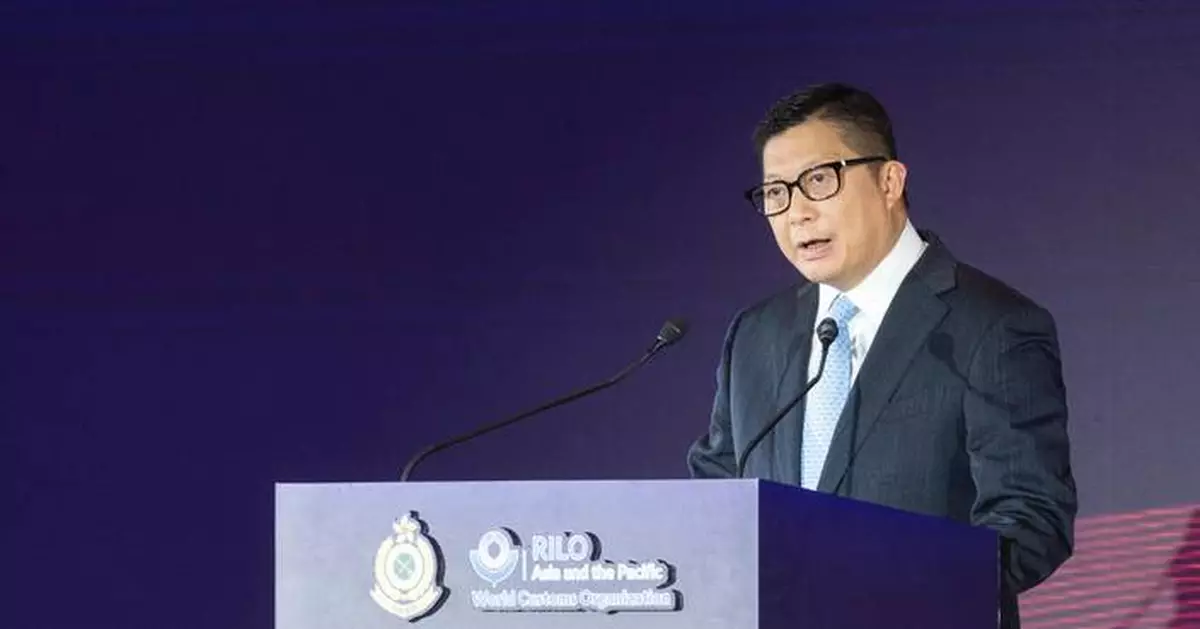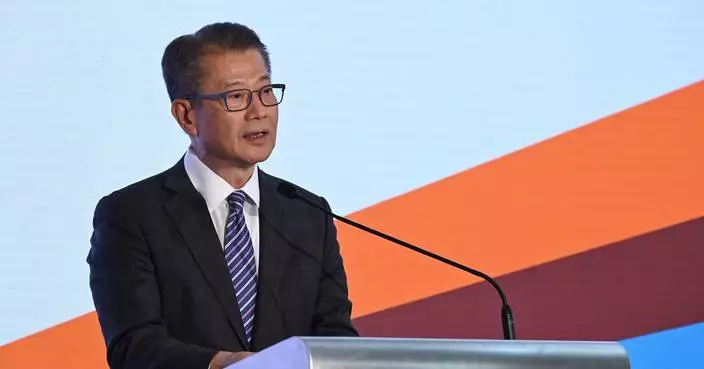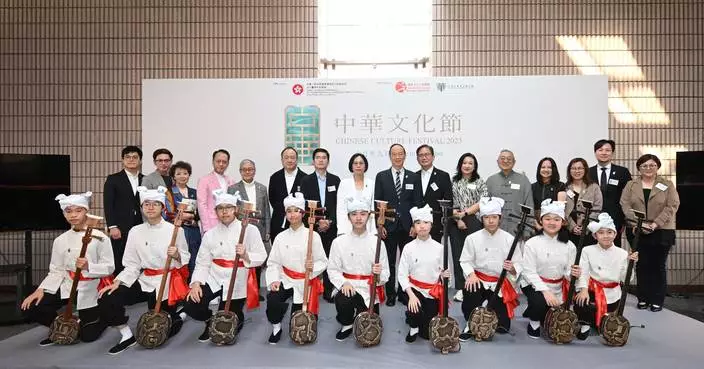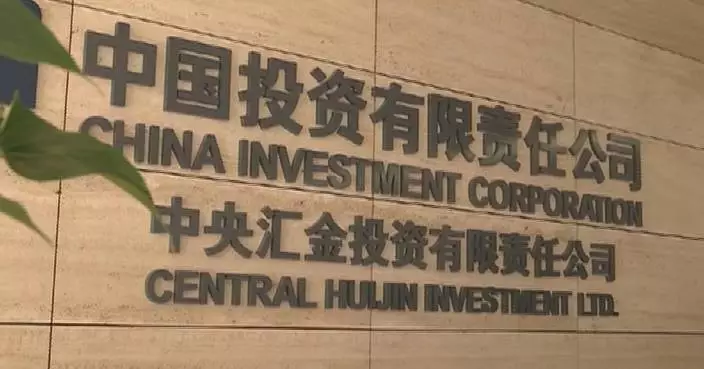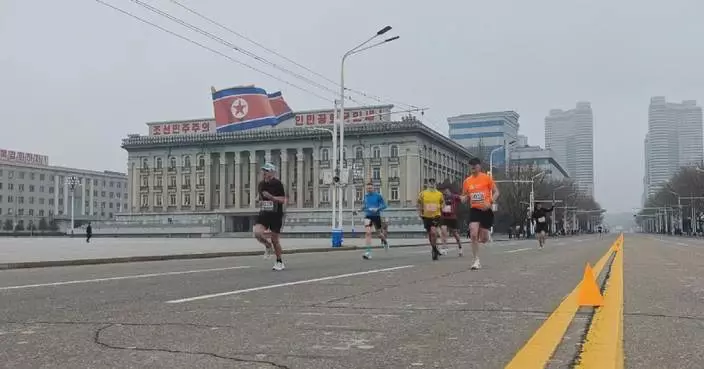Speech by S for S at International Forum on Combating Money Laundering and Transnational Organized Crimes: Criminal Networks, Trade Dynamics and Beyond
Following is the speech by the Secretary for Security, Mr Tang Ping-keung, at the International Forum on Combating Money Laundering and Transnational Organized Crimes: Criminal Networks, Trade Dynamics and Beyond today (December 10):
Mr Osawa (Head of the Regional Intelligence Liaison Office for Asia and the Pacific of the World Customs Organization, Mr Toshihiko Osawa); Secretary for Justice, Mr Paul Lam, SC; Commissioner of Customs and Excise, Ms Louise Ho, distinguished guests, ladies and gentlemen,
Good afternoon, and welcome to Hong Kong. I am delighted to know that over 250 of you from various customs administrations, international organisations, and local and international law enforcement agencies, as well as different experts and stakeholders in the anti-money laundering community, are joining this Forum.
It is my pleasure to speak on one of the most pressing global challenges today, that is, transnational organised crimes and their perpetuation by the intricate networks of money laundering.
Global crime trend and the threat of transnational organised crime
According to the Global Crime Trend Summary Report in 2022, INTERPOL noted that organised crime ranks at the top of five broad crime areas, dominating the global crime threat landscape. These criminal groups demonstrate high flexibility in adapting and expanding their illicit operations for profit. They have evolved and expanded networks with branches that span multiple jurisdictions.
Drug trafficking remains a significant revenue source for organised crime groups. In the latest World Drug Report, the United Nations Office on Drugs and Crime warned that the cocaine production hit a record high of 2 700 tonnes, representing a 20 per cent increase over 2021. The report also highlighted that traffickers have found ways to integrate themselves into other illegal markets by working with other organised crime groups.
Other forms of transnational organised crimes include, for example, the infringement of intellectual property rights, tax evasion, and the smuggling of endangered species. It is estimated that the black market for illegal wildlife products generates around US$20 billion annually worldwide, while counterfeit goods trade amounts to approximately US$400 billion in 2019, equivalent to 2.5 per cent of world trade. These alarming figures underscore the vast scale of criminal activities we are up against.
The intricate network of transnational organised crime and money laundering
At the core of transnational organised crime lies the crime of money laundering. They are deeply interconnected, forming an intricate network where each element supports and sustains the other. Criminal enterprises employ sophisticated methods to disguise the origins of their illicit proceeds, allowing them to reinvest in further criminal activities. In the Global Financial Crime Report 2024, Nasdaq estimates that US$3 trillion in illicit funds flowed through the global financial system in 2023, with fraud scams and bank fraud schemes totalling US$480 billion in losses globally. This illustrates the massive threat that money laundering poses to global financial integrity.
Tackling transnational organised crime and money laundering
To tackle such threats, no country can isolate itself, and it demands a co-ordinated approach that transcends borders and sectors. Here, I would like to share three of my humble suggestions to counter the issue. First and foremost, we need concerted international co-operation. Co-operation generates synergistic effects, and it is only through unified efforts of international co-operation, intelligence exchange, and meaningful dialogues setting enforcement strategies that such impact can be amplified and bring about meaningful changes. That is why the Financial Action Task Force (FATF) and INTERPOL come into play. I strongly believe that when countries come together to combat crime, they enhance their resources and capabilities, forming a stronger, more formidable alliance on a global scale.
Through active participation in international bodies, such as the FATF, the Asia/Pacific Group on Money Laundering, the Egmont Group, and INTERPOL, jurisdictions could strengthen the global partnerships and enhance their abilities to exchange vital information with each other. Let us pick Hong Kong as an example. In 2023, the Joint Financial Intelligence Unit (JFIU) processed over 2 000 financial intelligence exchanges with 98 Egmont Group members and four non-Egmont Group members across continents. I am also glad to share that Hong Kong will host INTERPOL's 94th General Assembly in 2026, during which delegations to be led by police chiefs and senior executives from 196 law enforcement agencies will attend. This would be the first occasion for Hong Kong to host the event, further demonstrating our strong commitment to promote international co-operation and to strengthen law enforcement and security collaboration.
My second suggestion is the need for a robust legal framework. Global safeguards and international co-operation against money laundering are only as strong as its weakest link. Criminals will make every effort to circumvent weak anti-money laundering controls to successfully launder money or to move assets through the global financial system, especially with the development of technologies including virtual assets, which makes tracing and asset recovery more challenging than before. So it is a common duty that jurisdictions should establish a robust legal framework and stringent anti-money laundering regime that aligns with international standards.
Take Hong Kong as an example again. To comply with FATF recommendations, apart from a resilient and responsive regulatory framework for financial institutions, we have introduced a registration regime for dealers in precious metals and stones, as well as a licensing regime for virtual asset service providers, further closing off channels that could potentially be exploited by criminals to launder money outside the banking system.
My third suggestion is compliance by the private sector. A robust legal framework can only achieve its full potential when paired with active co-operation from the private sector. The financial sector and non-financial gatekeepers should continue to press hard to implement risk-based preventive measures to detect and prevent abuse of the financial system for money laundering. By spotting money laundering and raising red flags on the frontline, the private sector has proven to be an invaluable partner of law enforcement agencies. I am most delighted to note the participation of the private sector in this forum today.
In many jurisdictions, in addition to customer due diligence and record keeping requirements applicable to financial sectors and non-financial gatekeepers, the statutory obligation of filing suspicious transaction reports (STR) apply to all persons, and such a reporting requirement continues to provide important intelligence to law enforcement agencies. Hong Kong is no exception. For example, in the first 10 months in 2024, our JFIU already handled over 100 000 STR filed by different sectors, mostly from financial institutions, showing a significantly enhanced awareness of their legal duties in recent years when compared to less than 40 000 STR in 2014.
In this regard, I welcome the collaboration between Hong Kong Customs and the University of Hong Kong in forging a strategic partnership in areas such as innovative technology and anti-money laundering. The strategic partnership will build a solid foundation for providing capacity building programmes in emerging technologies for regional customs authorities to enhance enforcement effectiveness.
Ladies and gentlemen, having shared with you my humble suggestions to counter money laundering activities and upcoming joint efforts required from our representatives here in combating transnational organised crimes, I hope that aside from work, our guests could spare some hours after each day's programme to discover the rich tapestry of our city's stories. Try to explore the bustling streets, experience the diverse cuisines, and immerse yourself in the vibrant culture that defines Hong Kong. In particular, our city is buzzing with panda joy following the recent birth of the first-ever giant panda twins in Hong Kong and with the arrival of a pair of new giant pandas gifted by the Central People's Government. If you will stay in Hong Kong over the coming weekend, I strongly recommend that you see the PANDA GO! FEST HK exhibition in Ngong Ping 360 near Tung Chung on December 14 and 15, 2024, which showcases a total of 2 500 cute sculptures of giant pandas. Lastly, may I wish you all a rewarding Forum and a very pleasant stay in Hong Kong. Thank you.
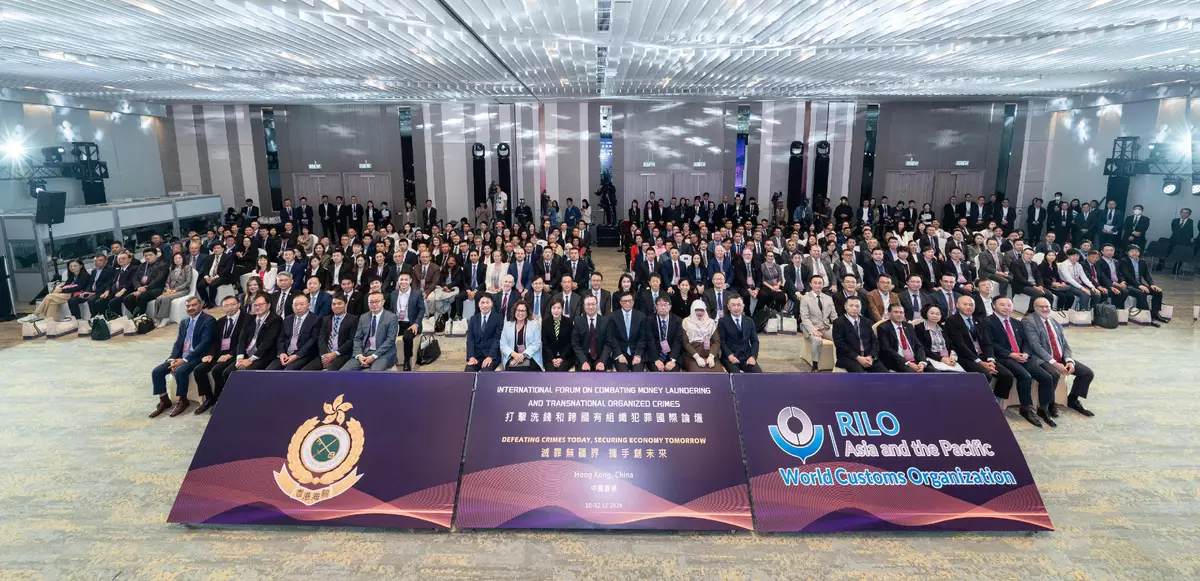
Speech by S for S at International Forum on Combating Money Laundering and Transnational Organized Crimes: Criminal Networks, Trade Dynamics and Beyond Source: HKSAR Government Press Releases
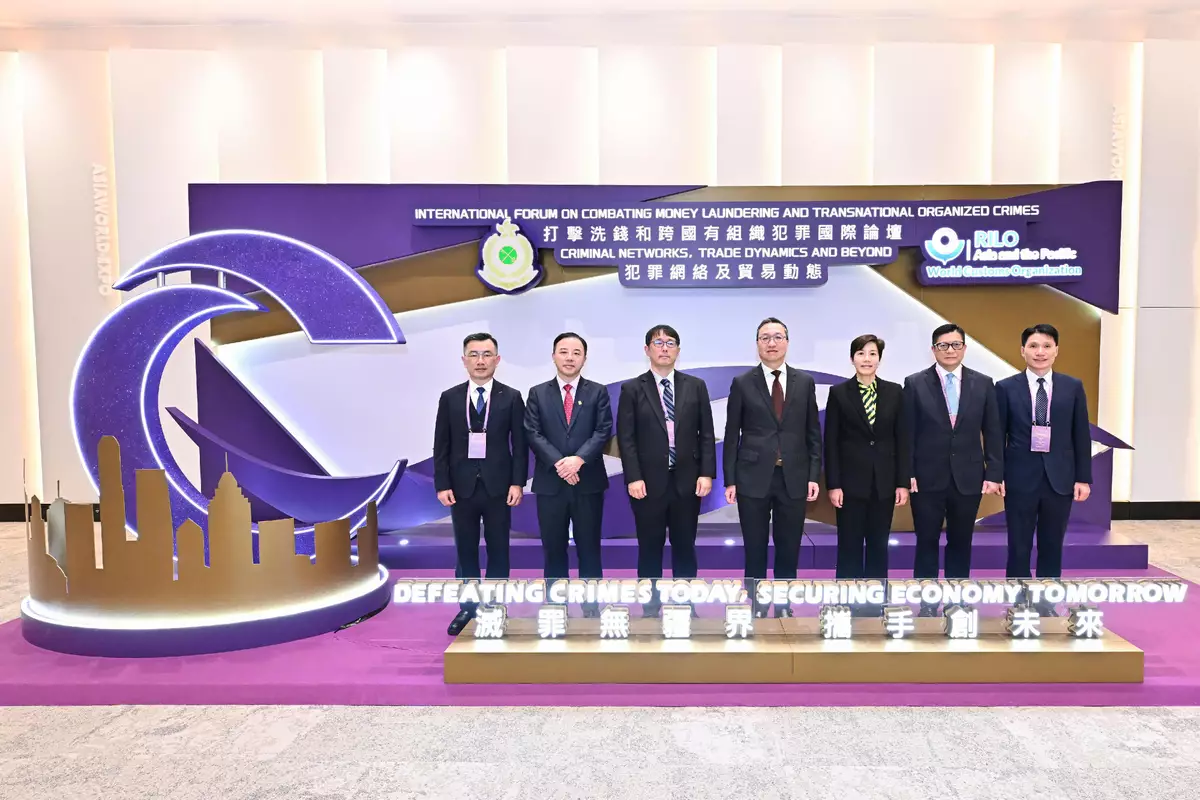
Speech by S for S at International Forum on Combating Money Laundering and Transnational Organized Crimes: Criminal Networks, Trade Dynamics and Beyond Source: HKSAR Government Press Releases
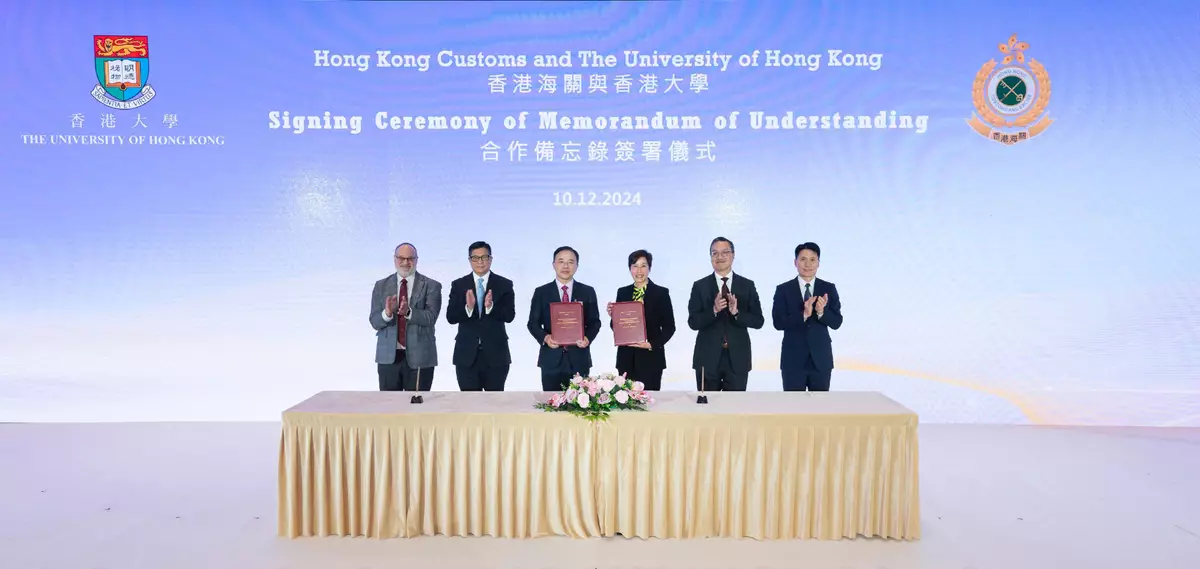
Speech by S for S at International Forum on Combating Money Laundering and Transnational Organized Crimes: Criminal Networks, Trade Dynamics and Beyond Source: HKSAR Government Press Releases
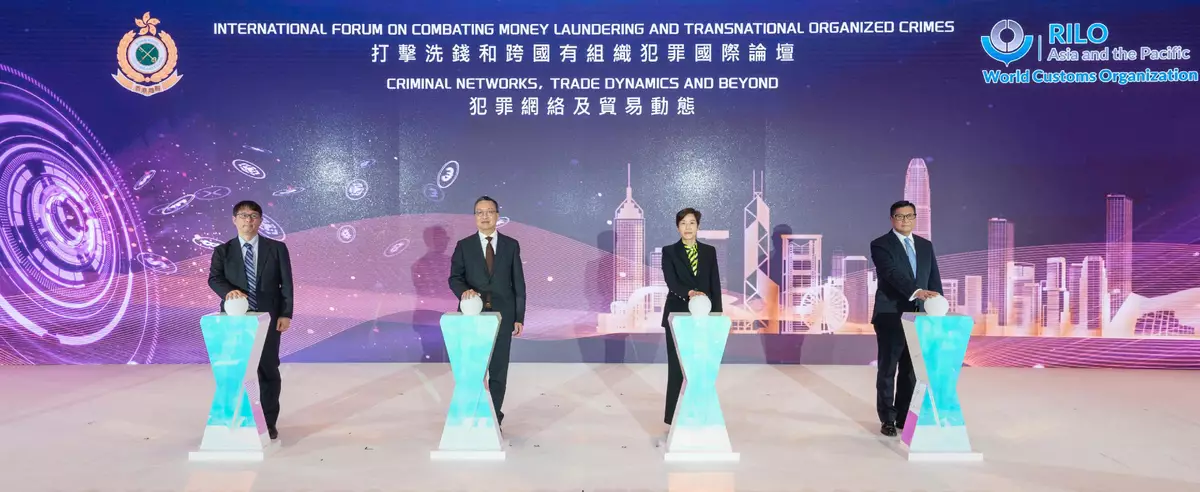
Speech by S for S at International Forum on Combating Money Laundering and Transnational Organized Crimes: Criminal Networks, Trade Dynamics and Beyond Source: HKSAR Government Press Releases
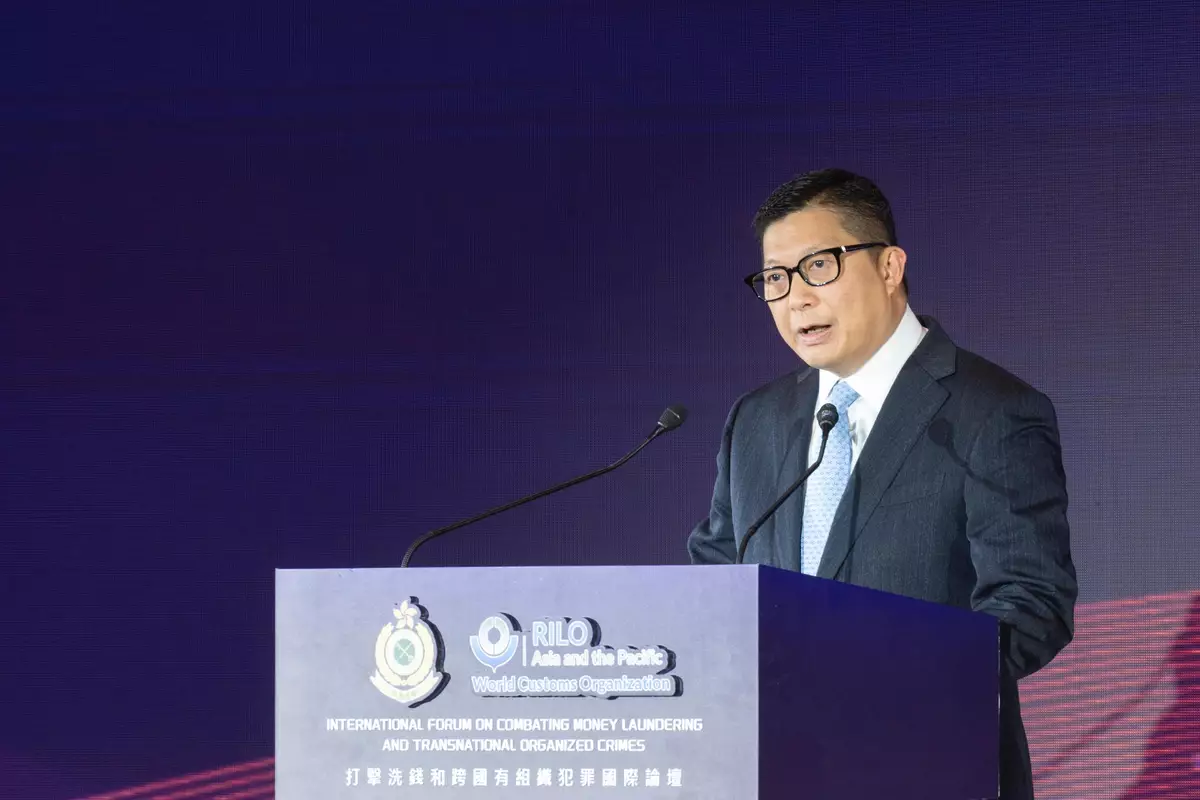
Speech by S for S at International Forum on Combating Money Laundering and Transnational Organized Crimes: Criminal Networks, Trade Dynamics and Beyond Source: HKSAR Government Press Releases


